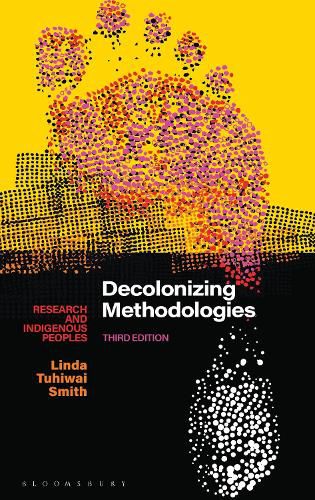Readings Newsletter
Become a Readings Member to make your shopping experience even easier.
Sign in or sign up for free!
You’re not far away from qualifying for FREE standard shipping within Australia
You’ve qualified for FREE standard shipping within Australia
The cart is loading…






To the colonized, the term ‘research’ is conflated with European colonialism; the ways in which academic research has been implicated in the throes of imperialism remains a painful memory.
This essential volume explores intersections of imperialism and research - specifically, the ways in which imperialism is embedded in disciplines of knowledge and tradition as ‘regimes of truth.’ Concepts such as ‘discovery’ and ‘claiming’ are discussed and an argument presented that the decolonization of research methods will help to reclaim control over indigenous ways of knowing and being.
Now in its eagerly awaited third edition, this bestselling book includes a co-written introduction features contributions from indigenous scholars on the book’s continued relevance to current research. It also features a chapter with twenty-five indigenous projects and a collection of poetry.
$9.00 standard shipping within Australia
FREE standard shipping within Australia for orders over $100.00
Express & International shipping calculated at checkout
To the colonized, the term ‘research’ is conflated with European colonialism; the ways in which academic research has been implicated in the throes of imperialism remains a painful memory.
This essential volume explores intersections of imperialism and research - specifically, the ways in which imperialism is embedded in disciplines of knowledge and tradition as ‘regimes of truth.’ Concepts such as ‘discovery’ and ‘claiming’ are discussed and an argument presented that the decolonization of research methods will help to reclaim control over indigenous ways of knowing and being.
Now in its eagerly awaited third edition, this bestselling book includes a co-written introduction features contributions from indigenous scholars on the book’s continued relevance to current research. It also features a chapter with twenty-five indigenous projects and a collection of poetry.